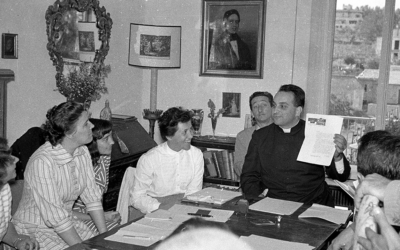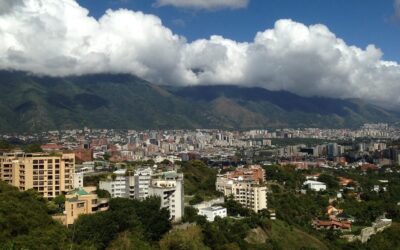 It was a real and proper ‘EoC Mission’ the one held in Serbia, in the region of Vojvodina and Belgrade, the first few days of February. The aim of the mission was to get to know up close the entrepreneurs and the families involved in the Economy of Communion in Serbia.
It was a real and proper ‘EoC Mission’ the one held in Serbia, in the region of Vojvodina and Belgrade, the first few days of February. The aim of the mission was to get to know up close the entrepreneurs and the families involved in the Economy of Communion in Serbia.
The EoC in Serbia is concentrated in the region of Vojvodina, and is not made up of great numbers but rather of varied experiences representing a society where the local communities suffer unemployment, scarce agricultural productivity and lack of services. It is composed mainly of artisans who, since the beginning of the EoC, have shared their profits, and who now must innovate their production, young people who intend to start up workshops, stores, farming initiatives which collaborate in the production of feed, and who give the product to the poor since they cannot give profit, entrepreneurs who have in common the choice of giving part of their profits the the EoC project, even while using different business strategies among them (the little business that gives credit to clients based on a relationship of trust rather than on interest, the biggest society trying to conciliate a dimensional growth with attention to the local community and to maintaining the number of jobs; a company director who, while not the owner, administers according to EoC principles.)
The beneficiaries of aid given: Other significant moments of the trip were the meetings with some of the realities that benefit from help coming from EoC initiatives: a meal service for children, families, and the elderly; a Caritas centre that organizes entertainment activities for both young and old. It is mostly young families who make themselves available to tell us their experiences: some of them are unable to pay for their children’s education; elderly people who cannot afford medical care; a husband and wife who live in a small house made of recovered materials, in extreme conditions of misery, yet at the same time with great dignity and openness towards their neighbours.
What is the contribution of the EoC in Serbia today – it is very clear that the economic model founded on the culture of giving continues to attract and to propose itself as a valid solution, up to making one rethink the socio-economic system from its very base; the awareness is very strong even for the EoC that today it is fundamental to be able to innovate and to anticipate changes (for the Balkan countries, the cost they will be carrying, as well as the prospects of development is emblematic for a future integration into the European Union).The role of the new generations will be fundamental in this process, of young people attracted by the EoC Ideal and competent not only on matters of health and work security, environment, marketing, project administration, and accounting, but also in the guidelines for conducting an EoC business, (studied and developed in detail referring to specific local and business contexts) that could offer entrepreneurs a concrete contribution both at the local level (Serbia could be representative of an important experimentation in this sense) and at the level of the International Commission. To form 3-5 young people, already locally identified who have these competencies is the proposal with which the mission concluded: this will be a way to create jobs for some youth who will be entering the EoC reality and businesses that will necessitate consultations in order to innovate, both on a general and a specific level, will also be helped.
Finally, a very important moment of dialogue with the Serbian Orthodox Community took place, in particular with the Institute for the study of Dialogue between Culture and Christianity in the person of BojanaBursac: from this encounter it is probable that in a not too distant future there might be a meeting between the EoC and Serbia’s orthodox. New frontiers of dialogue can be seen on the horizon.




0 Comments